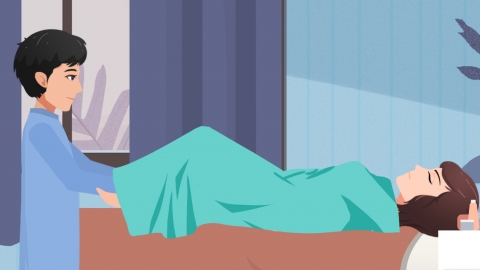What to do if uterine contractions are poor
Generally, poor uterine contractions may be caused by excessive postpartum fatigue, emotional anxiety and tension, incomplete uterine involution, endometritis, myometritis, and other factors. It is recommended to seek timely medical consultation to identify the exact cause and improve the condition under a doctor's guidance through adequate rest, medication, and other methods. Detailed explanations are as follows:

1. Postpartum Excessive Fatigue: Engaging in physical labor or frequent movement too early after childbirth can lead to physical exhaustion, which affects the contraction function of uterine muscles and results in weak contractions. Ensuring sufficient rest, reducing physical exertion, avoiding prolonged standing or walking, and lying on one's side can relieve physical strain and create favorable conditions for the recovery of uterine contractions.
2. Emotional Anxiety and Tension: Long-term anxiety and tension can disrupt hormonal balance in the body, inhibiting uterine contractions, which is common in postpartum women. Alleviating emotional stress through listening to calming music, communicating with family members, and maintaining a peaceful mindset can help. Psychological counseling may be necessary to regulate hormone levels and promote uterine contractions.
3. Incomplete Uterine Involution: If the uterus fails to return to its pre-pregnancy state promptly after childbirth, the contractility of uterine muscles weakens, often accompanied by prolonged lochia duration and increased volume. Follow medical advice to use medications such as oxytocin injection, motherwort seed granules, and new huoxue granules to enhance uterine contractility, promote uterine involution, and reduce lochia volume.
4. Endometritis: Inflammation caused by pathogen infection of the endometrium disrupts normal uterine muscle contractions, often accompanied by abdominal pain and foul-smelling lochia. Follow medical advice to use medications such as cefuroxime axetil tablets, metronidazole tablets, and levofloxacin hydrochloride capsules to control infection, eliminate inflammation, and restore uterine contraction function.
5. Myometritis: Inflammation affecting the muscular layer of the uterus causes uterine muscle edema and reduced contractility, often accompanied by high fever and persistent lower abdominal pain. Follow medical advice to use potent anti-infective medications such as ceftriaxone sodium for injection, metronidazole for injection, and clindamycin hydrochloride capsules. Combine with physical therapies such as heat application to promote inflammation absorption and aid in the recovery of uterine contractions.
In daily life, maintain a balanced diet and consume more protein-rich foods such as chicken and fish to replenish energy. Avoid tub bathing after childbirth and keep the vulva clean to prevent worsening infections. Through scientific postnatal care and standardized treatment, support the recovery of uterine contraction function and maintain reproductive health.






